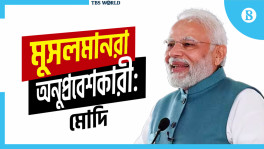Fiscal consolidation is a way out

The government has to mobilise resources as much as possible from all possible sources. This is necessary to underwrite the biggest possible subsidy package in our history.
To deal with the rising prices of daily necessities, the government needs to further review the tariff and tax structure. This also entails harmonisation of the subsidy structure where food and energy need to get priority.
However, it will also be necessary to expand the sales network of the Trading Corporation of Bangladesh (TCB). To this end, family cards need to be made operational as soon as possible in Dhaka and beyond. The current discrepancy between official and kerb market rates of foreign exchange needs to be addressed immediately by downward adjustment of value of Taka. Importers are buying foreign currency at higher than the official rate, and obviously the additional amount would be passed on to consumers. It is also time to rethink about relaxing the band on interest rates, particularly the deposit rate.
For sustainably mitigating the current macroeconomic risks, the path lies through fiscal consolidation. In this case, the emphasis has to be on expanding the tax net without harassing the existing taxpayers.
On the other hand, there are adequate reasons to increase the taxable income level from Tk3 lakh to Tk3.5 lakh. The other side of the fiscal consolidation would be pruning and sequencing the public expenditure kitty, particularly the annual development programme. Direct food support and fiscal assistance to the disadvantaged families should be front loaded.
The government has already given some signals, such as imposing a ban on foreign travels of government officials, in this regard. But the issue demands a fundamental review of the line items of both revenue expenditure and development outlay. Thankfully, budget deficit is not a big issue as of now.
Debapriya Bhattacharya, distinguished fellow at the Centre for Policy Dialogue (CPD)


 Keep updated, follow The Business Standard's Google news channel
Keep updated, follow The Business Standard's Google news channel
















